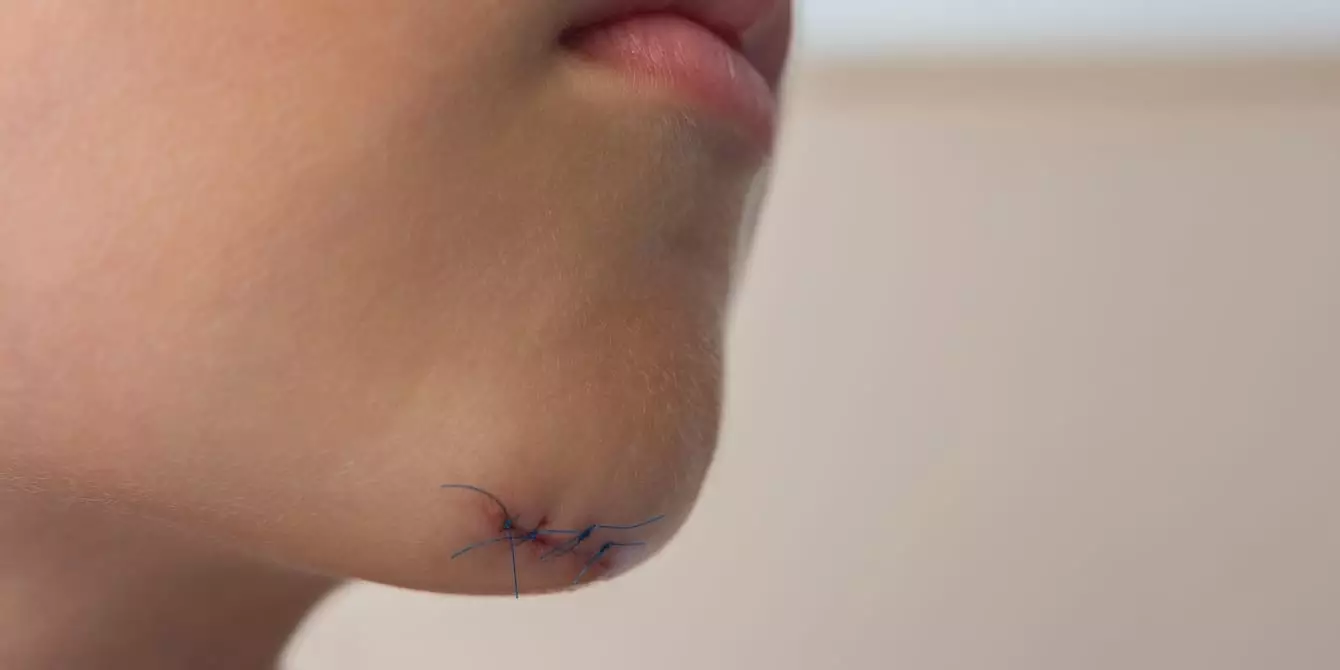The moment every parent fears can happen in the blink of an eye. Picture this: a carefree afternoon at the playground suddenly turns into a frantic dash to the hospital after your little one suffers a fall. Such was the recent experience I had with my two-and-a-half-year-old, who took an unfortunate tumble, resulting in a noteworthy cut to his forehead. While the injury was alarming, it wasn’t just the accident that caused anxiety; it was the prospect of clinical procedures and what that could entail for both him and me as a parent. However, what unfolded during our hospital visit taught me invaluable lessons about managing children’s reactions to medical situations.
For many parents, the thought of a medical visit can evoke stress beyond the injury itself. The process of waiting, being assessed, and undergoing interventions like stitches or x-rays can seem like a breeding ground for chaos. In my case, the need for stitches became inevitable, and my apprehensions intensified. As a parent, what can often seem like a straightforward medical intervention to an adult can feel like a daunting journey to a child.
Yet, once the initial shock of the fall subsided and we found ourselves in the hospital, I was surprised by my son’s reaction. As he climbed down from the hospital bed, he declared, “That was fun!” This unexpected remark prompted me to reflect on the entire episode rather than focusing solely on the trauma of the injury. I realized that, despite the inevitable tears and discomfort, the experience had transformed into something that he found enjoyable, and I had a hand in steering it that way.
The Power of Preparation
When it comes to children facing medical challenges, preparation emerges as a crucial strategy. Children thrive on predictability, and it is our responsibility to furnish them with the knowledge and reassurance they require. Long before entering a doctor’s office or a hospital, I take the time to educate my son about what to expect. This means breaking down each step of the process succinctly and honestly, without sugarcoating any potential discomfort. It is vital that they understand that while there may be moments of pain, it is temporary and ultimately serves a purpose.
Being transparent about the challenges ahead allows children to mentally brace themselves. When a child knows what is coming, they are far more likely to cooperate, thus lessening the sense of chaos and unpredictability that can come with medical interventions.
During medical appointments, I advocate for involving my child in the process. Communication with healthcare professionals is key. I often begin by informing them of my desires for my son to be included throughout the procedure. This collaboration makes the experience less intimidating for him and nurtures a sense of autonomy. By seeing the instruments that will be used and understanding the role of the medical staff, my child feels more in control of his experience.
I narrate the unfolding events as they happen, providing a “sportscast” of sorts. This method not only helps ease anxiety but also transforms the situation into a learning opportunity. For instance, instead of simply proceeding with a shot, I outline what will happen, help him choose where he would prefer to receive it, and identify the tools that will be utilized. By allowing him agency and promoting dialogue, he is often less frightened and more engaged.
Instilling Confidence Through Honesty
It can be tempting to distract children from uncomfortable realities during medical visits. However, shrouding them in distractions may inadvertently instill more fear and anxiety. Addressing their feelings openly about potential pain or discomfort fosters trust and reinforces their resilience. By framing the situation honestly—acknowledging the probable discomfort while emphasizing that it’s for their well-being—I aim to cultivate a mindset where they view these experiences as manageable.
Encouraging children to express their preferences, such as whether they want to see the procedure or turn away, empowers them. This autonomy equips them with the confidence to face what lies ahead and helps dissolve the feelings of helplessness that often accompany medical visits.
Finally, it is imperative that we dismantle preconceived notions about children’s abilities to handle medical procedures. Many parents instinctively believe that their child could never handle something daunting, but it’s essential to provide them the opportunity to surprise us. My son’s cheerful exclamation, “That was fun!” serves as a poignant reminder of just how resilient children can be when given the right tools and support.
What could easily devolve into a traumatic experience can, with the right approach, become a moment of growth and empowerment for both parent and child. By addressing their fears, preparing them adequately, encouraging involvement, and fostering a spirit of confidence, we pave the way for our children to navigate their medical experiences with a level of positivity and resilience that many adults struggle to achieve.

